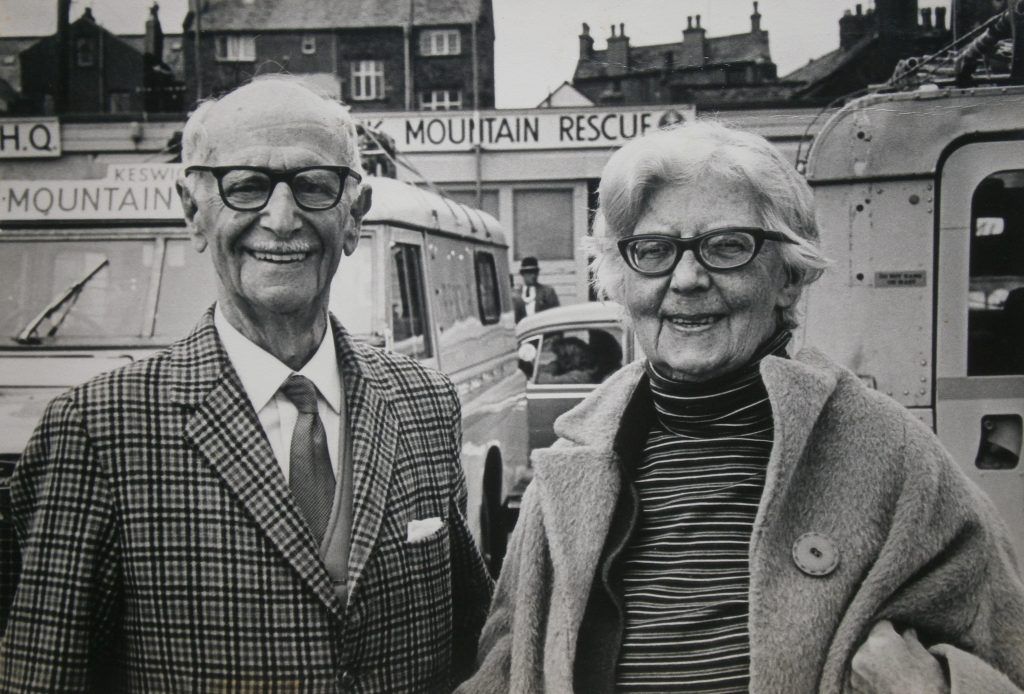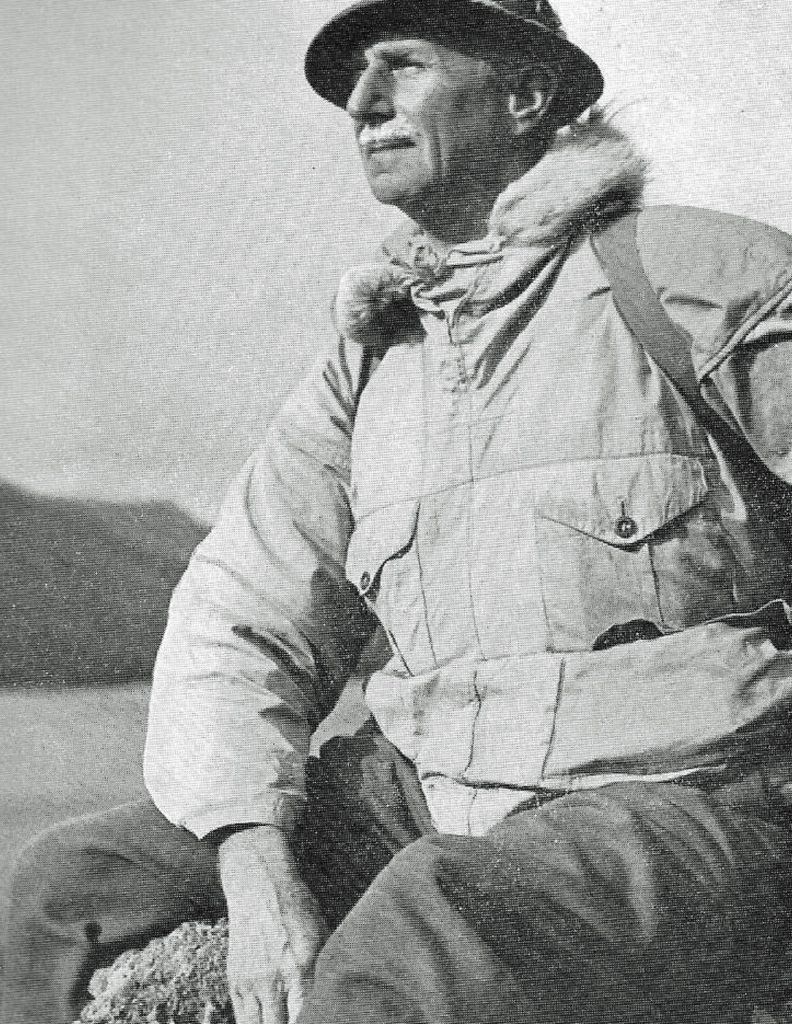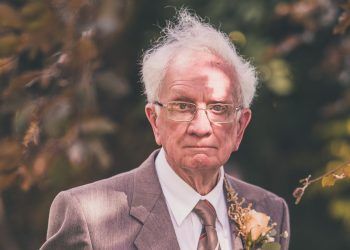
Thirteen years of painstaking research has gone into the fascinating biography of the man who founded Keswick’s mountain rescue team.
Francis Morgan-Grant, of Hexham, has delved deep into the life of Horace ‘Rusty’ Westmorland, whose adventures in the outdoors span 90 years.
They started on his first birthday when he and his two-year-old sister were taken for an open-air overnight bivvy by his parents to Norfolk Island on Ullswater. Two weeks later, they were both taken to the summit of Helvellyn to attend a bonfire to celebrate Queen Victoria’s Golden Jubilee.
On his fourth birthday, his father Thomas, who ran a successful fellmongering and tannery business in Penrith, took him to Brougham Castle, where they both climbed up to the second storey and back down again, without using a rope, and on his 15th birthday (1901), he climbed Pillar Rock with his sister and father, all unroped, a daring feat for that time.
When his father died in 1909, Rusty became a man of private means so he was able to go out climbing almost every day. During this freedom, he met and became close friends with George and Ashley Abraham, whom he was to climb with on many occasions in the Lakes and Wales.
In March 1910 with others, he made the first ascent of Easter Crack on Elliptical Crag followed in April by the first ascent of Blizzard Chimney. With his cousins, he climbed more winter climbs on St Sunday Crag; Fairfield; The Dodds; Dollywaggon Pike and Catstye Cam. In June he set off for the Alps with the Abraham brothers on a climbing photographic expedition. During their visit, they made many first ascents which became the basis for George’s book: On Alpine Heights and British Crags.
In 1911, he went to Canada and secured work with a mountain survey party run by Arthur Wheeler, the founder of the Alpine Club of Canada. During his three years of working with Mr Wheeler, Rusty climbed many peaks and summits in the Canadian Rockies along with Swiss guides such as Konrad Cain, the Fuez brothers and others.
He got a commission in the Territorial Army and following the outbreak of the First World War, he was commissioned in the Canadian Royal Transport Company. During his time at the front, he was nominated several times for mentions in dispatches for his bravery when he led his ammunition horse supply train under fire, to troops on the front line of both Ypres and the Somme.
He returned to Canada after the war, continued to serve with the Canadian Army and climbed and skied whenever possible. He was to discover climbing crags in Nova Scotia, was instrumental in discovering skiing venues in Quebec and made significant climbing ascents in Vancouver and on Vancouver Island, some of which have been rarely repeated. He was also a keen horseman and participated in many competitions in Halifax, Nova Scotia, winning several times in his class (heavy horse), and he was also a good amateur golfer and all-round skier.
In 1936, he went to the Alps with his close friend Dr P. B. Finn (Director of Atlantic Fisheries), for two weeks and in that time, they climbed the Unttergabellahon, Riffelhorn (by three different routes), Rimpfischhorn, and then capped their holiday off with an ascent of the Matterhorn. When back in Cumberland, Gerald Greenback and others, had set up the Lake District Ski Club which Rusty was invited to be president of, which he remained connected to for the rest of his life.
On his return to Canada, he was fully involved in the mountain warfare training programme set up in the Rockies by the Alpine Club of Canada. This led to Rusty going on a clandestine visit to the War Office in London, which resulted in the Lovat Scouts being sent on the training programme, commanded by Frank Smythe.
With the onset of the Second World War, Rusty was given the go-ahead from the Canadian Government to set up and run the country’s first official military mountain warfare training camp at Terrace, east of Prince Rupert. While travelling there on the train, he took seriously ill with biliary colic resulting in his gall bladder being removed.
As a result, in 1945 he was medically discharged from the army with the rank of Lieutenant-Colonel, returned to his beloved Cumberland, and settled down to his retirement in Keswick.
Never one to allow any grass to grow beneath his feet, he was out on the fells and crags within days of arriving home.

A year later in 1946, he went to the aid of Wilfrid Noyce (Everest veteran) who had fractured his femur while out climbing on Great Gable. This 20-hour rescue led to Rusty forming the Borrowdale Mountain Rescue Team which later changed its name to Keswick MRT. He was eventually awarded the OBE for his services to mountain rescue, in addition to receiving the Silver Rope Award from the Alpine Club of Canada in 1947, being the only climber to do so that year.
In the 1960s he suffered from stomach cancer – underwent 15 major operations – given a few weeks to live in 1964 – but was still climbing and walking in 1976 aged 90, without helmet, harness or other modern-day climbing aides, and while wearing a full-time catheter!
On November 24, 1984, Rusty finally succumbed to his illness and sadly, dementia, and passed away in a nursing home near Kirkby Stephen. A particular view from Great Gable, thought to be the finest in all Lakeland, was marked by his father and uncle by building a cairn in the 1830s, now known as the Westmorland Cairn where Rusty’s ashes were spread.
Mr Morgan-Grant said: “As a local climber and mountaineer myself whose life has somewhat followed that of Rusty’s, and as a member of the Vancouver Island Branch of the Alpine Club of Canada, just as Rusty was in the 1920s, I felt that his name had lain in the dark for too long.
“For example, when I gave a talk on Rusty to Keswick MRT many years ago, some members had no idea who he was, not even that he founded the very organisation they were volunteering for.
“I decided to write his biography to make local people aware of who he was and what his contribution to the development of Keswick was given its standing today as the main hub of Lakeland rock climbing. This aside, he is also responsible for all the mountain rescue teams that followed.”
Mr Morgan-Grant is organising a talk in Keswick on Rusty for the new year with 50 per cent of the door money going to Keswick MRT and the remainder to Cumbria MND Organisation.
Copies of the biography can be bought from the author at: [email protected] or from Needle Sports, Keswick.








